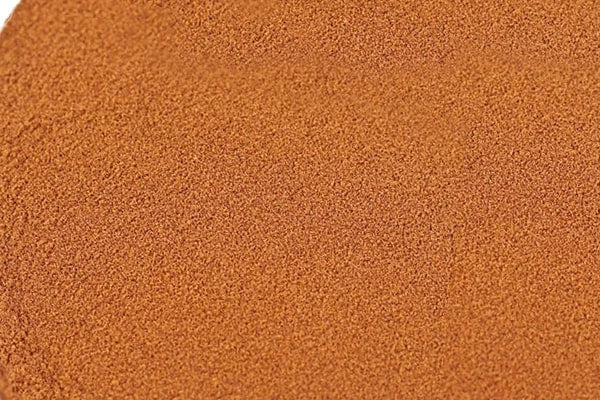Unsure if you should go ahead with your plans of building a vegetable patch because nothing seems to grow in your garden save for weeds?
The first step to a healthy, thriving garden is preparing the soil. And we're not just talking about tilling the soil and preparing the plots; we’re talking about improving the nutrient profile of your garden soil.
The soil needs to have the right balance of nutrients to support different plants. If the soil is not nutrient-rich, plants won't reach their potential. With every harvest, nutrients from the soil are depleted. You have to remineralize the soil so it can support another round of plants using chemical or natural fertilizers. Since natural fertilizers like hummus and compost are eco-friendly, these are the best choices for your garden.
Contents []
Hummus VS Compost: What's the Difference?
Hummus is often mistaken for compost simply because both compost and hummus come from decayed organic materials. But here’s the thing: hummus and compost are two different things.
Compost is comprised of decayed organic matter. Although compost is fully "cooked" or mature when added to the soil, it will take time for the organic material to break down completely. Even when compost is dark, it will literally take years to achieve a stable point of decomposition.
On the other hand, hummus is made from organic matter that has reached a point of stability. Unlike compost that may have leftover cellular structures and characteristics of plants and microorganisms, hummus is 100% fully decomposed matter.
The 3 Types of Humic Substances
The components of humus are divided into three types. These are: fulvic acid, humin, and humic acid.
Fulvic acid
a yellowish-brown component of humus. It has smaller molecules than humic acids and soluble in water at all pH levels. Fulvic acid is often used as a supplement to boost immunity and protect from disorders ranging from Alzheimer's disease to eczema.

Humin
Humin is a brownish-black component of humus. It is an insoluble component of hummus.

Humic Acid
a dark-brown component of hummus that’s water-soluble at higher soil pH (alkaline). Its molecules are bigger than fulvic acid. Used in gardening, humic acids deliver vital nutrients from the soil to the plant. When undisturbed in the ground, humic acid could remain in the soil for centuries.

Humic Acid in Gardening: Top 5 Benefits of Humic Acid
Boosts Nutrient Uptake in Plants
The main reason why humic acids are so popular among gardeners is they boost the nutrient uptake of plants/crops. Humic acids are often used to amend the soil without using chemicals. Most fertilizers - chemical and natural alike - do not provide complete nutrients to the plants. Humic acids are different because these products make vital nutrients more available for the plants to absorb. Growers no longer need to use different fertilizers to provide plants all the nutrients they need to grow. They could simply use humic acids and save money on fertilizers.

Protects from Toxins
Heavy metals, pesticides, and other dangerous chemicals are absorbed by the soil, affecting plants of all kinds, and most times, these pollutants end up on your plate.
Toxins also degrade the soil quality, often leading to poor crop health and a dismal harvest. Humic acids protect plants from toxins by absorbing pollutants, so these toxins won’t be uptaken by the plants. Humic acids have a way of locking dangerous molecules up. The toxins are simply flushed away. By using humic acids, crops remain healthy throughout the growing season and safe for people to eat.
Reduces Water Evaporation
Humic acids have a negative charge that attracts positive ions. These ions or cations attract water molecules into the soil, keeping the ground nice and moist for longer -- even when the weather gets hot and dry!
Climate change has affected growers worldwide, and crops end up drying because of the hotter weather and drier soil. Using humic acids, the soil can hold more water for longer, reducing water evaporation by up to 30%. Crops grown in sandy, arid, or low clay soils will benefit significantly from humic acids.

Supports Healthy Microbiome
A healthy garden is teeming with life, and we’re not just talking about bees, butterflies, earthworms, and critters that the eye can see. The soil should be healthy enough to support the growth of healthy bacteria. Beneficial bacteria are crucial in keeping the soil and plant healthy.
Food and shelter are the two things that humic acids provide to beneficial bacteria.
Beneficial bacteria help restore the soil’s nutrients. Humic acids provide carbon, a food source for microbes, and in turn, microbes thrive to improve the soil’s nutrient profile. Also, humic acids provide shelter to beneficial microbes, which is why beneficial microbes multiply quickly in the presence of humic acids.
Building a thriving garden and ensuring a plentiful harvest starts by caring for the soil. Humic acids are not just beneficial for plant health; they could also remineralize your soil so you can plant and enjoy your harvest season after season. Humic acids give plants that extra boost of nutrition for healthy growth!



